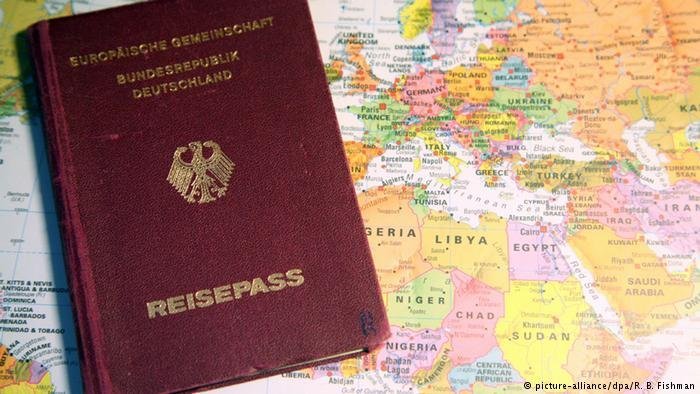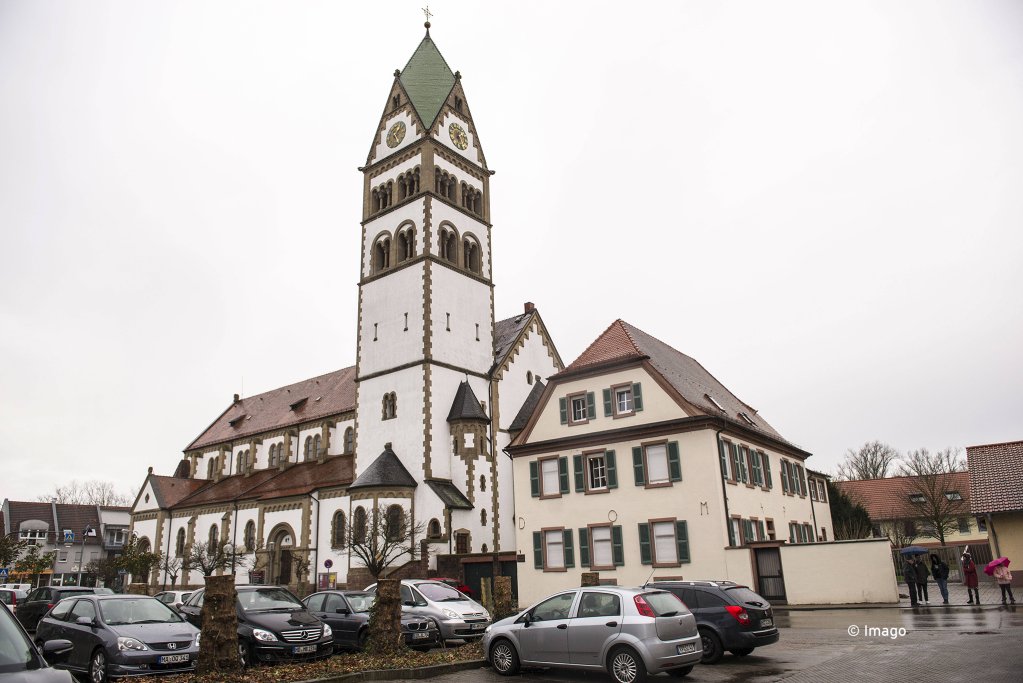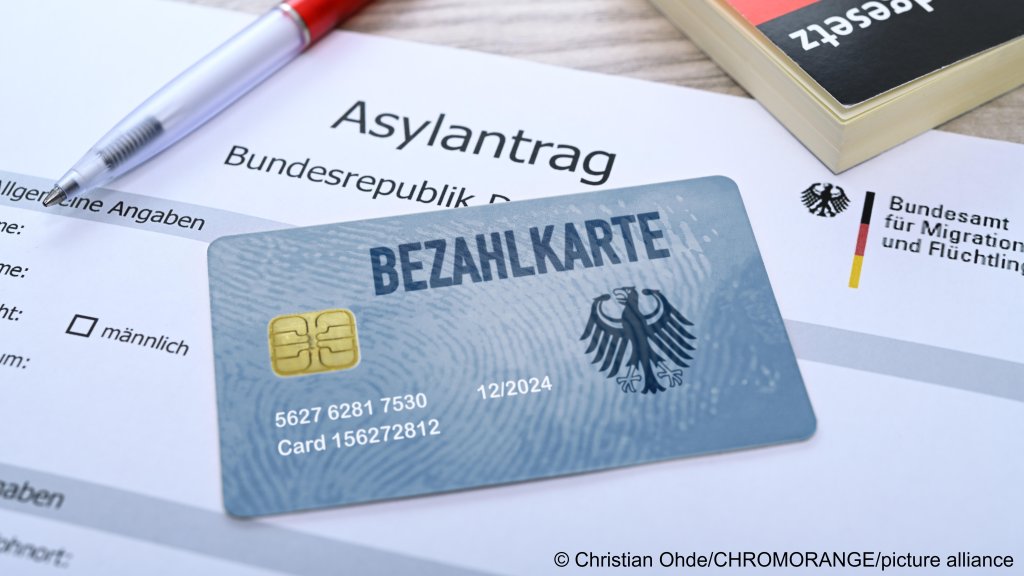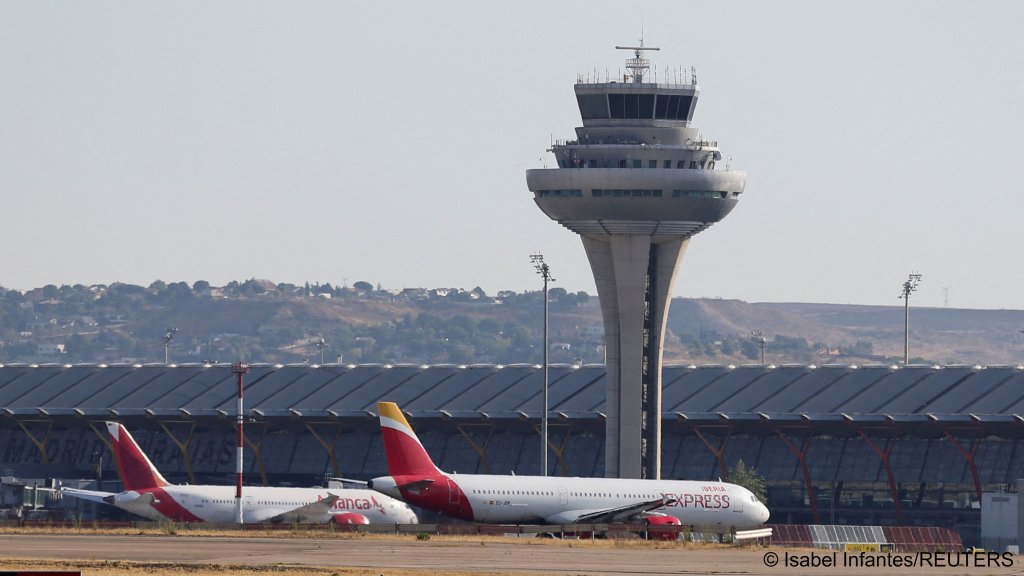This year saw political upheaval and major changes in migration policy in Germany, affecting the nearly 3.5 million people who have received international protection here. Here is an overview of the biggest developments in 2024.
In 2024, people who came to Germany as asylum seekers were once again in the spotlight, as the social and political debate on refugees continued.
There are close to 3.5 million migrants in Germany with some form of international protection – more than at any time in the past.
Parliament passed a number of reforms, most of which reflected more restrictive immigration policies.
New opportunities – for some
This year Germany launched a new scheme to attract qualified professionals. The government introduced the reworked Skilled Immigration Act, to lower the barriers to immigration of skilled workers from countries outside the European Union.
Part of this initiative is the so-called "Chancenkarte" or "opportunity card" – a residence permit that allows workers from non-EU third countries to enter Germany without a work contract to seek employment. It is based on a points system similar to other countries like Canada.
Up to 25,000 people were allowed to come to Germany using this route in 2024, according to Germany's Federal Employment Agency (Bundesagentur für Arbeit), with the agency expecting to double this number next year.
Read AlsoGermany: 'Opportunity Card' launches for skilled migrants to seek employment
More foreign qualifications recognized
Following years of bureaucratic hurdles, German authorities have started to recognize a growing number of foreign qualifications, lowering their standards to admit people into formal employment in the hope of addressing growing gaps in the labor market.

More than two-thirds of the positive decisions issued were in relation to qualifications in the medical field, with over half related to professionals in nursing. Engineers, teachers and other educators were also among the most recognized foreign qualifications. The qualifications of medical doctors are also increasingly being accepted.
The majority of those positive decisions were made in cases involving individuals with qualifications from Turkey, Bosnia and Herzegovina, the Philippines, Tunisia, Syria, India and Ukraine.
Read AlsoGermany recognizing more foreign qualifications
'Better' deportations – by law
Germany's divisive Repatriation Improvement Act (Rückführungsverbesserungsgesetz) came into force in February, designed to speed up repatriations and deportations of people who have no grounds to remain in Germany – in particular those who have been convicted of a criminal offense or have been proven to be a member of a criminal organization.
The new law also gives local and regional authorities greater powers in dealing with asylum seekers who have not committed any offenses, for example by extending the amount of time they can be detained and by allowing police to search their accommodation and smartphones, among other things.
Read AlsoGermany's deportation law – What has changed?
A divisive new citizenship law
Germany also overhauled its citizenship laws, introducing two major changes that foreigners in the country can benefit from. The reformed citizenship law will allow foreign nationals to hold dual passports, which had only been allowed under exceptional circumstances before. Not having to give up your original passport meant that thousands of fresh applications for citizenship were lodged in the course of 2024.

The other major change is that naturalization as a German is now possible after only five years of legal residency in Germany, as reduction from the previous eight years. Proving German language skills, however, remains a major hurdle in nearly all cases.
However, opposition parties have already called for the law to be reversed.
Read AlsoGermany's reformed citizenship law is coming into force. What does it mean for migrants?
Germany's 'security package' – an immigration law in disguise
Following a number of attacks carried out by foreign nationals in Germany, the government introduced a series of new laws.
These included new stipulations for migrants and asylum seekers in Germany who had previously registered in another EU country and have therefore already been ordered to leave. The new legislation says that for these people, social benefits will be reduced to a minimum – but only in cases where it is considered "legal and possible" for the affected individuals to be deported.
Another cornerstone of the law is a paragraph that effectively bans most trips back to an asylum seeker's country of origin. If someone who has been granted protection status in Germany decides travel back home, this will be treated as grounds to deny them protection in Germany in future. However, there are exceptions to this, such as attending a parent's funeral.
Read AlsoImmigration: What is in Germany's new 'security package'?
Benefit cuts for recognized asylum seekers
Another significant law passed by German lawmakers is a reduction in basic welfare benefits available to asylum seekers. While the amount itself is fairly small – between 13 and 19 euros a month depending on individual circumstances, politicians in Germany seem increasingly willing to use state benefits as a deterrent for people hoping to come to the country.
Under the new law, which will take effect in 2025, a single asylum seeker with no further dependents will likely receive no more than 460 euros per month, if they live independently. Asylum seekers living at a reception center, where they have room and board provided, will receive only about 164 euros a month to cover their personal expenses, such as public transport and mobile phone costs.
Read AlsoGermany to reduce welfare benefits for asylum seekers in 2025
Church asylum in peril
In 2015, Germany's Federal Office for Migration and Refugees (BAMF) had reached an agreement with Christian churches to respect church asylum in most instances. Until 2024, both sides had largely respected the provisions of that agreement. In the past year, however, the principle of seeking asylum at church premises has repeatedly been under scrutiny.
In February 2024, a Syrian national was deported from church asylum in the state of Rhineland-Palatinate to Denmark under the EU's Dublin rules, where he was facing a prison sentence.
In July, there were seven cases of evictions, attempted evictions or threats of eviction in cases of church asylum across Germany. In October, an Afghan asylum seeker was deported from church asylum to Sweden under Dublin rules, where he had been denied asylum before.

The issue came to a head in May, when a family from Russia was sent back to Spain under the Dublin Regulation just a week before they would have qualified to have their case assessed in Germany. The case drew major criticism, as authorities resorted to using force to enter the church premises on a Sunday. Since 1998, authorities and state governments across Germany had refrained from forcibly entering church sanctuaries.
Read AlsoValidity of church asylum in Germany questioned following deportation of family
Payment cards instead of cash and bank transfers
Most German states have gradually started handing out pre-loaded payment cards to asylum seekers in 2024 to cover their basic needs.
The intention behind the payment cards is to ensure that benefits paid by the state are used by recipients to support themselves in Germany and to prevent money back home or to purchase items not deemed to be a basic need.
Read Also
Germany to introduce payment cards for asylum seekers

More deals with countries of origin – and perhaps third countries
German Chancellor Olaf Scholz signed two separate migration agreements in September with Kenya and with Uzbekistan to return migrants from these two countries. However, very few people from either of those two countries of origin ever lodge asylum claims in Germany.
The agreement with Kenya is regarded as part of a two-way deal: in exchange for Kenya cooperating more closely with the German government in accepting rejected Kenyan asylum seekers, Germany will get more proactively involved in attracting skilled workers from the East African country.
The exact nature of the agreement with Uzbekistan, however, remains unclear. Uzbekistan is host to thousands of Afghan nationals who fled their country after the Taliban takeover in August 2021. It is unclear whether the deal with Uzbek authorities can be expanded to send back Afghans from Germany, amid calls to strike the Central Asian country off the list of dangerous countries.
The migration partnerships signed in 2024 have, however, also attracted a great deal of criticism from human rights groups.
Read AlsoGermany to examine asylum processing in third countries

Tighter border checks
Germany introduced additional border checks along nearly all of its land borders with its neighboring countries, covering nearly 3,700 kilometers. The measures were initially part of security measures for the UEFA European Football Championship held across Germany but were then extended in various stages.
Germany implemented initial six-month border control measures at its land borders with France, Luxembourg, the Netherlands, Belgium, and Denmark in September, in addition to existing current temporary checks at Germany's borders with the Czech Republic, Poland, and Switzerland, which had already been in place since October 2023. Checks at the Austrian border have been in place since 2015.

The German government cited the need to manage irregular migration, block alternative routes that may be taken by people smugglers, and protect its internal security in light of recent attacks in the country associated with extremist groups. Germany's largest police union has reported that the border checks have resulted only in little progress in actually reducing irregular migration numbers.
Read AlsoGermany border controls: What this means for refugees and asylum seekers
Fast-tracked 'airport procedure'
The German government adopted part of the EU's new Common European Asylum System (CEAS) well ahead of the deadline, enabling fast-track asylum processing and the speedy return of failed asylum seekers directly from the airports they arrive at.
Since Germany is not located on the EU's external borders, the only way for migrants to reach the country directly from outside the Schengen Zone is effectively by plane. The new airport procedure allows officials to hold people from safe countries of origin at a designated part of the transit area of Germany's international airports for as long as 12 weeks – longer than previously. Failed asylum seekers can be held for another 12 weeks while their deportation details are being formalized.

Only a small number of asylum seekers ever arrive in Germany by air; in 2023, there were only 402 airport procedures, according to Germany's Federal Office for Migration and Refugees (BAMF).
Read AlsoWhat are the accelerated airport procedures to be introduced in Germany?
New definition of 'safe country of origin'
Germany's paliament has also redefined what it means to come from a "safe country of origin" in 2024. While cases will continue to be assessed on individual merit at all stages of the asylum procedure, countries will be earmarked as "safe" if the overall recognition rate from any given country – i.e. the proportion of applicants typically granted protection in Germany – is under 20 percent.
Currently, that low recognition rate, however, only applies for Turkish citizens applying for asylum in Germany.
Read AlsoWhat are the accelerated airport procedures to be introduced in Germany?
Calls to address the changing situation in Syria
In December, the fall of the Assad regime in Syria led to celebrations among the hundreds of thousands of Syrian exiles in Germany.

The German government announced it would pause over 47,000 pending asylum requests and said it will review its asylum practices in light of the ongoing situation. Similar decisions were taken in Austria, Belgium, Croatia, Denmark, France, Germany, Greece, Italy, Norway, Sweden and the United Kingdom.
According to German government data, there were roughly 973,000 Syrians living in Germany at the end of 2023, three quarters of whom had been granted some level of protection, making Germany the EU country with the highest number of Syrian nationals. Even before the fall of the Assad regime, there were calls by various politicians as well as a number of court rulings to define parts of Syria as "safe."
